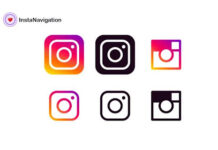-
Table of Contents
- The Julesari Leaked: Unveiling the Controversial Incident
- The Julesari Leaked: Understanding the Incident
- The Impact of the Julesari Leaked Incident
- Protecting Your Privacy Online
- 1. Strengthen Your Passwords
- 2. Enable Two-Factor Authentication
- 3. Be Mindful of Sharing Personal Information
- 4. Regularly Update and Patch Your Devices
- 5. Use Encryption and Secure Communication Channels
- Q&A
- 1. How can I know if my personal information has been leaked?
- 2. What should I do if my personal information has been leaked?
- 3. Can I prevent my personal information from being leaked entirely?
- 4. Are there any laws to protect individuals from privacy breaches?
- 5. How can organizations prevent privacy breaches?
Over the past few years, the internet has become an integral part of our lives, connecting people from all corners of the world. While this connectivity has brought numerous benefits, it has also exposed individuals to various risks, including privacy breaches and leaked information. One such incident that has recently gained significant attention is the “Julesari leaked” controversy. In this article, we will delve into the details of this incident, explore its implications, and discuss the measures individuals can take to protect their privacy online.
The Julesari Leaked: Understanding the Incident
The “Julesari leaked” incident refers to the unauthorized release of personal information and private conversations of a prominent public figure, Julesari. The leaked content includes sensitive details such as personal photographs, emails, and text messages, which were intended to remain private. The incident has sparked a heated debate about privacy rights, online security, and the ethical responsibilities of individuals and organizations.
The Impact of the Julesari Leaked Incident
The Julesari leaked incident has had far-reaching consequences, affecting not only the individual involved but also the broader society. Some of the key impacts include:
- Violation of Privacy: The incident has highlighted the vulnerability of personal information in the digital age. It serves as a stark reminder that even public figures are not immune to privacy breaches.
- Mental and Emotional Distress: The leaked content can have severe psychological effects on the individual involved. It can lead to feelings of humiliation, anxiety, and depression, impacting their personal and professional life.
- Damage to Reputation: The release of private conversations and personal photographs can tarnish an individual’s reputation, leading to public scrutiny, loss of trust, and potential damage to their career.
- Legal Implications: Depending on the jurisdiction, the unauthorized release of personal information may be a violation of privacy laws. Legal actions can be taken against the perpetrators, which may result in fines or imprisonment.
Protecting Your Privacy Online
The Julesari leaked incident serves as a wake-up call for individuals to take proactive measures to protect their privacy online. Here are some essential steps you can take:
1. Strengthen Your Passwords
One of the simplest yet most effective ways to protect your online accounts is by using strong and unique passwords. Avoid using common phrases or easily guessable information such as your name or birthdate. Instead, opt for a combination of uppercase and lowercase letters, numbers, and special characters. Additionally, consider using a password manager to securely store and generate complex passwords.
2. Enable Two-Factor Authentication
Two-factor authentication (2FA) adds an extra layer of security to your online accounts. By enabling 2FA, you will be required to provide a second form of verification, such as a unique code sent to your mobile device, in addition to your password. This significantly reduces the risk of unauthorized access, even if your password is compromised.
3. Be Mindful of Sharing Personal Information
Think twice before sharing personal information online, especially on public platforms or with unfamiliar websites. Be cautious about the information you provide on social media, as it can be used to build a profile of your interests, habits, and preferences. Limit the amount of personal information you share and adjust your privacy settings to control who can access your data.
4. Regularly Update and Patch Your Devices
Keeping your devices, including smartphones, computers, and tablets, up to date with the latest software patches and security updates is crucial. These updates often include fixes for known vulnerabilities that hackers can exploit. Set your devices to automatically install updates or regularly check for updates manually.
5. Use Encryption and Secure Communication Channels
When transmitting sensitive information online, such as financial details or personal conversations, ensure that you are using secure communication channels. Look for websites with “https” in the URL, indicating that the connection is encrypted. Additionally, consider using end-to-end encrypted messaging apps for private conversations.
Q&A
1. How can I know if my personal information has been leaked?
It can be challenging to determine if your personal information has been leaked, as it often happens without your knowledge. However, there are some signs to watch out for, such as receiving suspicious emails or messages, noticing unauthorized transactions on your financial accounts, or discovering your personal information on public websites. Regularly monitoring your online accounts and setting up alerts for unusual activities can help you detect potential leaks.
2. What should I do if my personal information has been leaked?
If you suspect that your personal information has been leaked, it is crucial to act swiftly. Here are some steps you can take:
- Change your passwords for all online accounts.
- Notify the relevant authorities, such as your local law enforcement agency or the cybercrime division.
- Contact your financial institutions to report any unauthorized transactions and request a freeze on your accounts if necessary.
- Monitor your accounts and credit reports regularly for any suspicious activities.
- Consider seeking legal advice to understand your rights and potential courses of action.
3. Can I prevent my personal information from being leaked entirely?
While it is challenging to completely prevent the leakage of personal information, following best practices for online security can significantly reduce the risk. By implementing strong passwords, enabling two-factor authentication, and being cautious about sharing personal information, you can enhance your privacy and minimize the chances of a privacy breach.
4. Are there any laws to protect individuals from privacy breaches?
Privacy laws vary across jurisdictions, but many countries have legislation in place to protect individuals from privacy breaches. These laws typically outline the rights of individuals regarding their personal information and impose obligations on organizations to handle personal data responsibly. In the event of a privacy breach, individuals may have legal recourse to seek compensation or hold the responsible parties accountable.
5. How can organizations prevent privacy breaches?
Organizations can take several measures to prevent privacy breaches, including:
- Implementing robust security measures, such as encryption and firewalls, to protect sensitive data.
- Regularly conducting security audits and vulnerability assessments to identify and address potential weaknesses.
- Providing comprehensive training to employees on data protection and privacy best practices.
- Establishing clear policies and procedures for handling personal information and ensuring compliance with relevant privacy laws.
- Engaging third-party security experts to conduct penetration testing and assess the organization’s security













